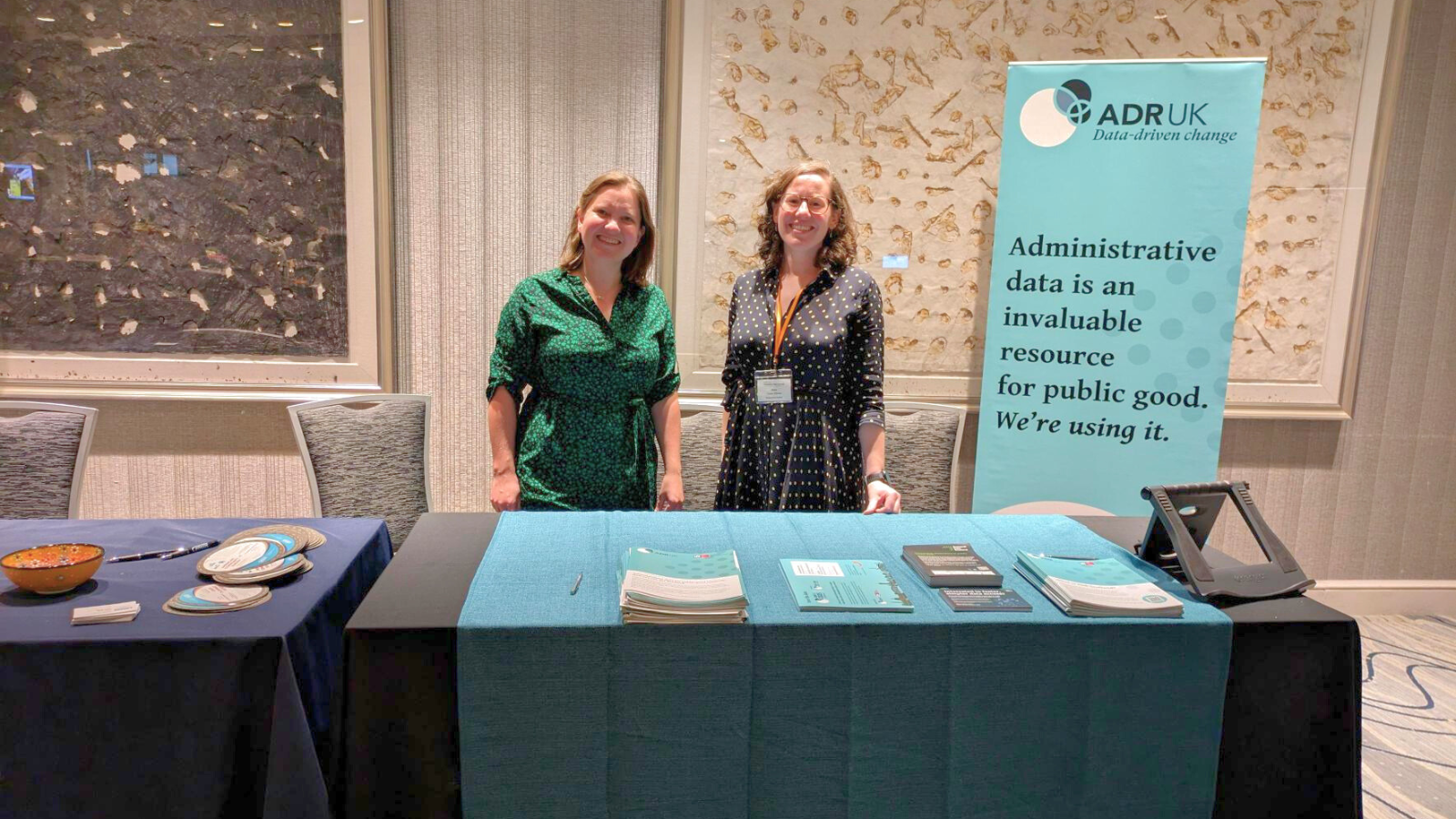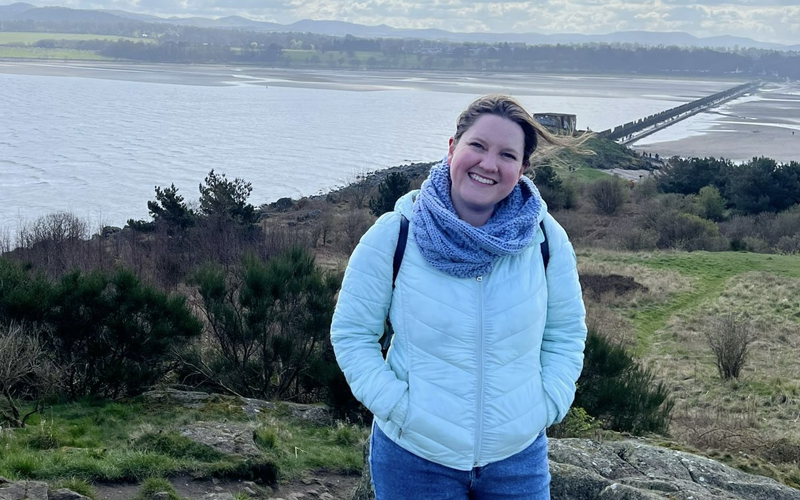
Public Engagement Fund open for applications
Research Data Scotland (RDS) has opened applications for its Public Engagement Fund, supporting projects that improve public understanding of the use of data in research.
02 Sept 2024

Katie Oldfield
30 Sept 2024
Fresh from the International Population Data Linkage Conference in Chicago, our Public Engagement Manager Katie Oldfield shares her thoughts on the event.
By Katie Oldfield
For five days this September, people from around the world met in Chicago to discuss all things data at the International Population Data Linkage Conference. I attended along with my colleague Nora Cooke O’Dowd to present some of the work Research Data Scotland is doing and to find out how others are tackling some of the challenges we face. I presented about establishing the Scotland Talks Data public panel and our next steps, whilst Nora spoke on our plans for synthetic data. We also joined our ADR Scotland and ADR UK colleagues on a stand for people to talk to us about our work.

The week kicked off with pre-conference workshops on Sunday morning so, with coffee in hand, we showed up ready to share experiences and collaborate. One of the workshops was ‘Drifts and Shifts: Monitoring Changes in the Social License for Research Using Health Data’ hosted by public engagement experts from Australia and Canada. Social licence was a theme of the conference and in this context refers to the agreement between data owners and processors and the public about the use of public sector data. The workshop opened by reminding us that social licence must go beyond the legal requirements to build community acceptance. The workshop was based around the results of a cross-country review to identify how people in Australia and Canada felt about data being used for research to monitor social licence in those countries. The project had carried out public engagement activities in each country to identify the similarities and differences in people’s opinions. Despite the distance, the similarities outweighed the differences, with people caring about topics such as protecting vulnerable populations, anonymisation and transparency on misuse.
“Actively monitoring social licence is key since it can change over time and vary across communities. ”
We concluded the morning by answering the question: ‘If you were ten times bolder, what idea would you action to monitor social licence’. We took the top six ideas and worked through the potential and challenges for each. These included things like additional questions on the national census about the use of data, sentiment analysis on social media or yearly national public panels. The room was buzzing with the chatter in our groups and the coloured markers were flying over the paper. With the range of experience in the room we quickly had flipcharts filled with barriers and ways to overcome them. Our session facilitators will be writing up the ideas into a shareable paper so if you want to know more then watch this space!
Data sovereignty and the historical process of collecting data was another common thread throughout the conference. We heard about the processes in place in Manitoba in Canada for the use of data about indigenous populations. Researchers must work with First Nations Health and Social Secretariat of Manitoba (FNHSSM) and have representatives from relevant indigenous peoples on their project teams, seek special approval for data access and the dissemination of research outputs. This process means that all research is carried out with cultural context and relevant populations are involved in telling their own stories. A talk by Actionable Intelligence for Social Policy (AISP) covered how we can consider the historical collection and use of data, sharing a toolkit focused on centering racial equity in our work. Including people in how their data is used and telling their own stories about the insights is part of ensuring that responsible research is carried out.
With over a hundred talks and posters presented, it was inspiring to see the potential for use of data. Many of the talks had direct relevance for my own work, like how UK LLC involve the public in approving research projects for access to data, which is an area of interest for our Researcher Access Service.
However, it can be all too easy to get caught up in our specialist area of work. In my day job I mostly concentrate on public engagement and changes to the data system, but attending a conference like this I was inspired by the great research being done with public sector data. I heard about research projects helping people identify childcare availability in their local area, projects improving the mental wellbeing of emergency first responders and others tracking the outcomes of children in social care. Hearing about this research emphasised the importance of improving the system and the tangible impact it can have on peoples’ lives.
“We are all working towards the same goal to improve the lives of those around us. ”
As Research Data Scotland are an organisation that works with Scottish data in a Scottish framework, it can be all too easy to be entirely focused on Scotland or the UK. What people are up to in New Zealand or Canada can feel very far away with different laws and different contexts. This conference showed me that those distances mean nothing. There is so much to learn from round the world — how Canada manage private sector access to data, work in America on equity and use of data with historical racial bias or how Australia and New Zealand monitor changes in social licence. International conversation is key to progressing and improving our own work since we are all working towards the same goal to improve the lives of those around those.
Related content

Research Data Scotland (RDS) has opened applications for its Public Engagement Fund, supporting projects that improve public understanding of the use of data in research.
02 Sept 2024

Katie Oldfield, Public Engagement Manager, shares what a typical workday is like at RDS, and her experience of developing our public engagement and involvement work.
22 Aug 2024
To stay updated with Research Data Scotland, subscribe to our monthly newsletter and follow us on X (Twitter) and LinkedIn.
